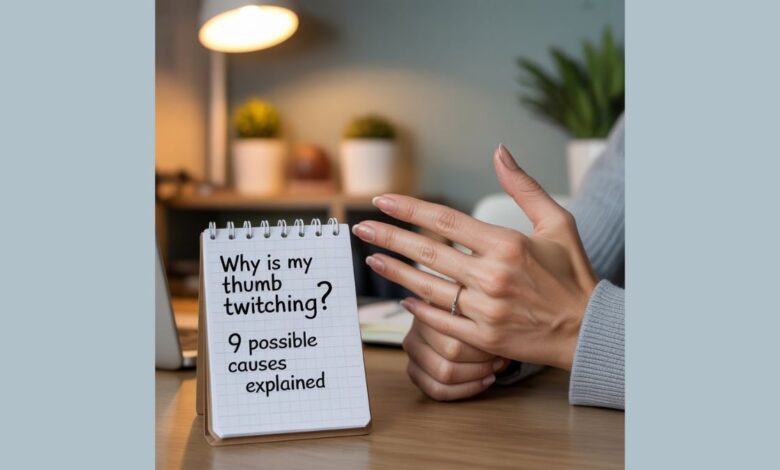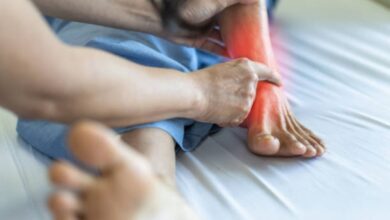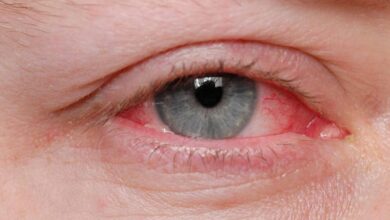Why Is My Thumb Twitching? 9 Possible Causes Explained

Have you experienced Why Is My Thumb Twitching? that makes you pay attention as you scroll or give a presentation? That involuntary flash is not worrying when it happens, which is frequent, but if it is prolonged it is cause of worry. The paper is a discussion of nine potential triggers, without and with alarms to consider, and a clear understanding and resolution, with statistics and advice provided in recent years.
In this knowledge tree, you will find:
- Causes of thumb twitches Simple life styles causes
- The role of stress, sleep and stimulants such as caffeine.
- When twitching possibly indicates some neurological difficulties
- The prevalence and risk statistics say
- Things that can and should be done to relieve and a doctor visit time frame
1. Benign Fasciculations – Most Common & Harmless
Fasciculations, analogously known as muscle twitches, affect as many as 70 percent of healthy people at one time or the other. They are not a cause of concern and often these are short-lived and limited. The usual causes are transient nerve mistakes, either due to fatigue, position, or slight electrolyte changes.
What helps
- Relax your hands and prevent its excessive use
- In case of hydration and electrolyte status
2. Muscle Fatigue & Overuse
Motions of the thumb such as typing, playing games, and texting can exhaust muscles and make them start twitching. The lack of breaks, as well as their overexertion, causes a loss of energy and electrolyte in muscle fibres.
Remedies:
- Make regular breaks (at least 30 60 mins)
- Finger and wrist stretches
- Ergonomic adjustments
3. Stress, Anxiety & Lack of Sleep
Muscles can be responsive when cortisol and adrenaline are released in a stressful situation. In the same way, sleep impairs the neuromuscular synchrony. The two cause twitches on the thumb or eyelid.
Solutions:
- Meditate, do breathing exercises, or yoga
- Get 7-9 hours of sleep Aim to get a 7-9 hours sleep
- When anxiety levels are high then cognitive-behavioral therapy is helpful.
4. Caffeine & Stimulant Intake
Caffeine activates your muscles and even your mind. An excess can increase twitching, at about 400 mg/day (=4 cups coffee).
Tips:
- Measure and limit caffeine consumption on a daily basis
- Change to decaffeinated or herbs teas
- See whether twitching reduces on reduced intake
5. Electrolyte or Vitamin Deficiencies
Muscle functions are controlled by electrolytes (magnesium, potassium, calcium). Shortages may induce the destruction or twitching. One study reported that 70 percent of the twitching patients improved upon the correction of nutrition.
Steps:
- Consume vegetables with green leafs, bananas, nuts, milk
- Stay hydrated
- Additional advice should be professional
6. Medication Side Effects
Why Is My Thumb Twitching? Neutral dystonia is associated with certain medications corticosteroids, antidepressants, anti-seizure drugs corticosteroids affect the blood vessels anti-depressants alkaloids euphoric, tingling, elevated body temperature, anorexia, muscle twitches (rare) antidepressant drugs (a sedative, or anti-seizure) Anti-seizure drugs are similar to anti-depressants in that they cause anti-depressian and anti-seizure effects, but they do not have the same interest (a high
What do:
- See new meds before the side effects of twitching are known
- Before giving up one or more prescription, consult with your doctor.
7. Essential Tremor
Why Is My Thumb Twitching? Essential tremor is rhythmic, and in many instances, induced by action (such as holding a glass). It is prevalent in about 5 percent of the population worldwide with age as a risk factor.
Signs:
- Only the thumb can twitch
- Tremors in the family history
Treatment:
- Beta blockers such as propranolol
- Primidone or anti-epileptics
- In severe cases Botox or ultrasound can be used
8. Neurological Conditions (Rare)
Recurrent twitches that cause muscle loss or weakness and numbness can be a sign of ALS, MS, or neuropathy.
Crimson flags should make you go to a doctor:
- Incessant twitching more than 2 weeks
- Weak or atrophied muscle of the thumb
- Other symptoms: tingles, loss of coordination, any deformities.
9. Injury or Nerve Compression
Swollen carpal tunnel is enough to cause the twitch in a thumb because it exerts pressure on the nerves.
What to look at:
- Thumb pain or numbness or tingling
- Bruise or thumb/hand injury
Solutions:
- Wrist bands, cut down exacerbating activities
- Look at ergonomic assistance or physiotherapy
When to See a Doctor 🔍
| Condition | Red Flags | Recommended Action |
|---|---|---|
| Persistent twitch | Lasts > 2 weeks, continuous | See GP or neurologist |
| Accompanied symptoms | Weakness, shrinkage, numbness, other limbs | Urgent medical evaluation |
| Systemic symptoms | Headache, fever, weight loss, coordination loss | Full neurological workup & labs |
Experts concur—if twitching is new, persistent, or paired with additional warning signs, prompt medical attention is necessary.
Lifestyle Tips & Quick Fixes
- Well hydrate (2 3L/day; greater when active)
- Balance using whole food or dietary supplements
- Reduce stimulants and caffeine levels to less than 400mg/day
- Pay attention to sleep and learn how to cope with stress
- Overused muscles should be rested, stretched and ergonomics corrected
- Observe drugs against twitching side effect
- Tone the palms and stance with soft exercise
Real Data Highlights
- Fasciculations encounter approximately 70 percent of healthy individuals
- Essential tremor incidence: Approximately 5 percent of adults in the world and more as people age.
- It is normal to have ongoing twitching over weeks, and usually harmless, though the twitching may be a sign of electrolyte imbalance or stress.
In Summary
- Majority of the twitching in thumbs are harmless and are associated with the daily aspects: stress, tiredness, stimulating agents.
- Note triggers: caffeine, insufficient sleep, overuse, unhealthy food.
- Consider lifestyle changes: drinking more water, eating, sleeping, stressing less.
- Twitching that is long-term or accompanied by other worrying symptoms should be addressed by health care.




